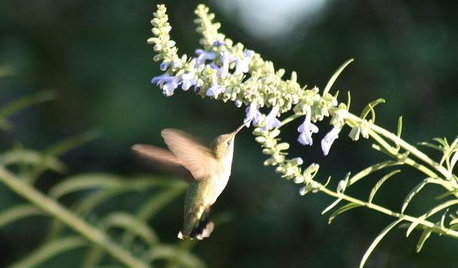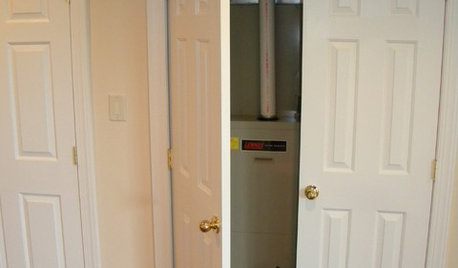pro Fertilizers
sirsedum
14 years ago
Related Stories

GARDENING GUIDESHow to Keep Your Citrus Trees Well Fed and Healthy
Ripe for some citrus fertilizer know-how? This mini guide will help your lemon, orange and grapefruit trees flourish
Full Story
FARM YOUR YARDHow to Grow Vegetables in Containers
Get glorious vegetables and fruits on your patio with a pro’s guidance — including his personal recipe for potting mix
Full Story
LANDSCAPE DESIGN7 Great Trees for Summer Shade and Fall Color
These landscape-pro faves straddle the seasons beautifully. Could one enhance your own yard?
Full Story
HEALTHY HOMEHow to Babyproof Your Yard
Oh, baby, it’s a wild world. Make it safer for your young one with these strategies from a pro
Full Story
EARTH DAYThe Case for Losing the Traditional Lawn
Work less, help the environment and foster connections by just saying no to typical turf
Full Story
FURNITUREEasy Green: Stylish Ecofriendly Furniture
Organic fabrics and sustainably harvested wood mean you can feel good about your furniture choices in more ways than one
Full Story
GARDENING GUIDESLush, Foodie Abundance in a Small Urban Garden
This modest backyard garden provides its owner with fruit and vegetables all year round, thanks to an innovative low-maintenance approach
Full Story
GARDENING GUIDESHow to Find the Right Native Plants for Your Yard
Find plant maps, sale sites and guides that make going native in the garden easier than ever
Full Story
SELLING YOUR HOUSE15 Questions to Ask When Interviewing a Real Estate Agent
Here’s what you should find out before selecting an agent to sell your home
Full Story
MOST POPULARA First-Time Buyer’s Guide to Home Maintenance
Take care of these tasks to avoid major home hassles, inefficiencies or unsightliness down the road
Full Story





sunnfarm3
gardengal48 (PNW Z8/9)
Related Professionals
Wrentham Landscape Architects & Landscape Designers · Glassmanor Landscape Architects & Landscape Designers · Winder Landscape Architects & Landscape Designers · East Patchogue Landscape Architects & Landscape Designers · Bell Gardens Landscape Contractors · Franklin Landscape Contractors · La Mirada Landscape Contractors · Las Vegas Landscape Contractors · Placerville Landscape Contractors · Stallings Landscape Contractors · Tehachapi Landscape Contractors · Whitehall Landscape Contractors · Canton Driveway Installation & Maintenance · Mission Viejo Driveway Installation & Maintenance · Mount Vernon Driveway Installation & MaintenancesirsedumOriginal Author
phdnc
sunnfarm3
muddydogs
sirsedumOriginal Author
sunnfarm3
Embothrium
Embothrium
sirsedumOriginal Author
gardengal48 (PNW Z8/9)
sunnfarm3
sirsedumOriginal Author
sandy0225
Embothrium